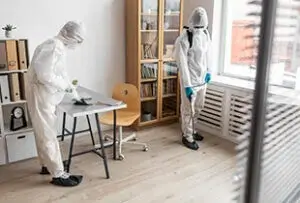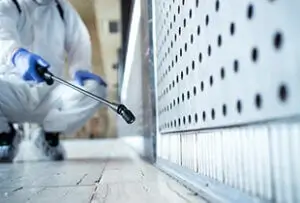
Bees & Wasp Pest Control Melbourne, VIC
Are you looking for professional bees and wasp pest control services in Melbourne to ensure the safe removal of bees and wasp nests on your property? At 365 Pest Control, we have several years of experience providing secure wasp treatment services for Melbourne homes and businesses.
Our expert bee and wasp removal service can remove bees and wasps from your property without harming you, your family, or your neighbours.
To learn more about our preventative bee wasps control and prevention services, call (04)33949536.
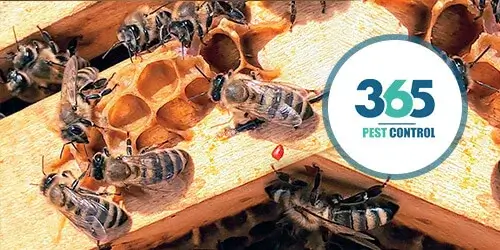
365’s Bees & Wasp Nest Removal Services
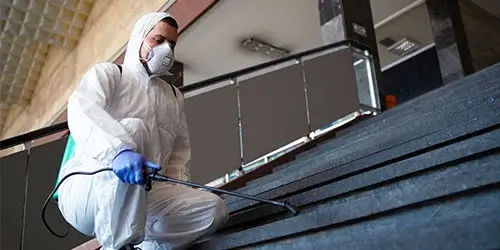
Residential Bees & Wasps Pest Control
Managing and eliminating bee and wasp infestations around homes and properties is part of residential pest control. In addition to pollinating and controlling pest populations, bees and wasps are beneficial insects in many ways. However, when their nests are built too close to human living spaces or in areas that threaten residents, they can become a nuisance or even a danger due to their stings.
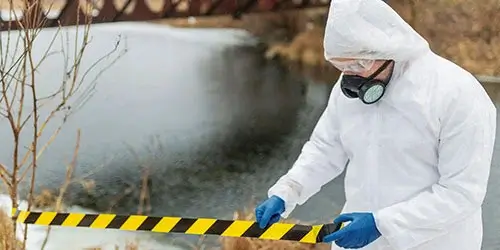
Commercial Bees & Wasps Pest Control
Commercial bee and wasp pest control focuses on managing and eliminating bee and wasp infestations in business establishments, industrial sites, and commercial properties. Pollinators play an essential ecological role while threatening employees, customers, and operations. Business and stakeholders benefit from 365's comprehensive assessments, targeted treatments, and preventative measures.
Process of Our
Bees Wasps Pest Control Treatment Plan

Initial Inspection
Initial Inspection

Safe Removal
Safe Removal

Risk Assessment
Risk Assessment

Preventive Measures
Preventive Measures

Treatment Plan Development
Treatment Plan Development

Documentation and Reporting
Documentation and Reporting

Bee Preservation or Wasp Eradication
Bee Preservation or Wasp Eradication

Follow-Up and Monitoring
Follow-Up and Monitoring
Reason to Choosing 365 for Wasps & Bees Control in Melbourne, VIC
- Qualified & well exp. Technicians
- Environmental friendly products
- Police check employees
- Always arrive on time
- Clean & calibrated equipment
- Quick response
- No smelly odours
- Guaranteed results
- Comprehensive support
- Focus on pest prevention
Request a Callback
FAQ on Bees & Wasps Pest Control
Ans. Immediately remove the stinger using a credit card or fingernail, wash the area with soap and water, apply a cold compress, and use over-the-counter pain relievers. Seek medical attention if you experience an allergic reaction.
Ans. Bees generally forage within a three to eight-kilometre radius of their hive. However, some species may travel even farther.
Ans. 365 pest control Melbourne uses specialized equipment to locate and safely remove bee hives in walls, preventing them from returning.
Ans. 365 Pest Control Melbourne can help you remove bee hives safely from your home without stinging you or causing structural damage. Call us on 0433 949 536 today.
Ans. Indeed, pest control services can effectively remove bees. However, it is essential to find a service that specializes in humane bee removal, as bees play a crucial role in our ecosystem. Contact 365 pest control today for more information about how you can protect your home and family.
Ans. The best way to get rid of bees and wasps is to leave your home. To deal with infestations, professional pest control companies like 365 Pest Control Melbourne often use specialized equipment, which can be harmful if not handled properly. Leaving your home during the removal is recommended for several reasons: Efficiency of Removal: When an area is clear, pest control professionals can work more efficiently and thoroughly. When this is done, the removal is more effective, which increases the chances of successfully eliminating the infestation. Avoiding Agitation of Insects: During pest control activities, the presence of people may agitate bees and wasps, making them more aggressive. In addition to ensuring the safety of occupants and pest control technicians, leaving the area minimizes the risk of stings. To ensure the safety and effectiveness of the pest control process, the service provider should provide you with specific instructions about whether and for how long you must vacate the premises before proceeding. You can contact the pest control technicians at 365 Pest Control Melbourne with any concerns or questions you may have so that they can be addressed adequately.
Ans. As with bee stings, wash the affected area, apply a cold compress, and apply over-the-counter pain relievers. Seek medical attention if you experience severe reactions.
Ans. A professional pest control service is recommended for safe wasp nest removal. DIY attempts can lead to aggressive behaviour and increased sting risks.
Ans. Professional services can provide safe and environmentally friendly solutions. Get in touch with 365 Pest Control Melbourne to discuss your needs. Natural remedies may provoke wasps.
Ans. Professional pest control services can help prevent nesting sites by conducting regular inspections of your property.
Ans. Wasps, unlike bees, can sting multiple times without dying, making their stings potentially more dangerous. Seek medical attention if your reaction is severe.
Ans. 365 Pest Control Services can safely locate and eliminate wasp nests in a wall cavity without causing further damage. Managing bee and wasp infestations in Melbourne, where diverse ecosystems and urban environments intersect, requires professional pest control. When dealing with pest control issues, always consider the needs of these essential pollinators first.
Learn More
About Bees:

Role in the Ecosystem
Bees are essential pollinators that play a crucial role in the reproduction of many plants, including crops that humans need for food. They help transfer pollen from one flower to another, enabling fruits, vegetables, and nuts.

Social Structure
Honeybees and bumblebees live in colonies with a structured hierarchy of workers, drones (males), and a single queen. As the name suggests, solitary bees live independently and do not form large colonies.

Types of Bees
There are over 20,000 species worldwide. The most well-known are honey bees, bumblebees, and solitary bees. Each species has unique behaviours and nesting habits.

Nesting Habits
Honeybees construct intricate wax hives. Bumblebees nest in small cavities in the ground or above the ground. Solitary bees create individual nests in various locations, such as holes in the wood or tunnels in the background.

Threats to Bees
Bees face numerous threats, including habitat loss, pesticide exposure, climate change, and diseases. Colony Collapse Disorder (CCD) is where entire honeybee colonies die off, possibly due to a combination of factors.
Learn More
About Wasps:

Ecological Role
Wasps are predators and scavengers, contributing to ecosystem balance by controlling insect populations. They often feed on insects, larvae, and other small animals.

Social Structure
Social wasps live in colonies with a queen, workers, and sometimes drones. They build papery nests from chewed wood fibres mixed with saliva.

Nesting Habits
Nest locations vary by species. Some build nests in trees, while others create underground burrows or construct nests under eaves and in other sheltered areas.

Types of Wasps
Wasps are categorized into social and solitary species. Social wasps include yellowjackets, paper wasps, and hornets. Solitary wasps live and hunt alone like mud daubers and cicada killers.

Stinging Behavior
Wasps are known for their aggressive behaviour and stinging capabilities, which they use for defence and hunting. They can bite multiple times and release pheromones that alert others to danger.

Human Interaction
While some wasp species can be beneficial, others, like yellowjackets, can be nuisances when they build nests near human activity areas. Wasp stings can cause pain, allergic reactions, and even fatalities in extreme cases.

